How Organic Ingredients in Makeup Promote Healthy Skin
flareAI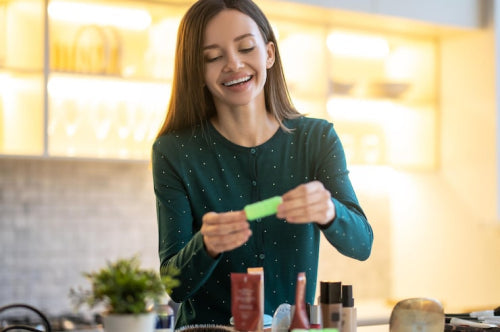
Quick Listen:
Picture this: You glide on a bold red lipstick for that evening out, only to wake up the next morning with unexplained redness around your lips. It's a subtle betrayal, one that's all too common in the world of conventional cosmetics. But what if your makeup could be an ally instead of an adversary? In an era where wellness extends from the plate to the palette, How Organic Ingredients in Makeup Promote Healthy Skin: The Benefits You Can't Ignore reveals a transformative truth: Formulas crafted with nature's finest can deliver stunning coverage while safeguarding and even enhancing your skin's vitality.
Many women feel trapped by makeup that hides flaws but risks irritation and hidden toxins. This daily choice weighs heavily, dimming confidence over time. Liht Organics invites you to embrace beauty differently. With up to 90% USDA-certified organic ingredients, our vegan, cruelty-free products deliver vibrant color and gentle care, letting you glow with confidence, knowing your skin is nurtured, not compromised. Shop Now!
Switch to Organic Makeup for Radiant Skin
The cosmetics counter has long been a siren song of instant glamour promises of fuller lips, smoother surfaces, and timeless allure dangling from every shelf. Yet, beneath the glossy veneer lies a stark reality: many of these elixirs harbor synthetic compounds that can quietly erode skin health over time. Enter the organic revolution, a seismic shift gaining unstoppable momentum worldwide. From the opulent souks of the United Arab Emirates to the vibrant bazaars of India, discerning consumers are flipping labels with forensic precision, seeking out "organic" and "natural" as badges of authenticity.
At the vanguard stands Liht Organics, a brand redefining high-performance beauty with formulations boasting over 80% clean, organic ingredients. These aren't fragile novelties; they're robust, everyday essentials safe enough to ingest, kind enough to cocoon the skin in care. Produced in the precision-driven facilities of the USA and Singapore, Liht's lineup bridges luxury and accessibility, proving that ethical beauty needn't come at an exorbitant cost. This movement transcends trends; it's a response to a clarion call for transparency in an industry once shrouded in secrecy.
Consider the stakes: In regions like Australia and Malaysia, where environmental stressors amplify skin woes, the demand for dual-purpose products those that beautify and heal has never been fiercer. Shoppers in Saudi Arabia and the US alike are awakening to the perils of prolonged exposure to irritants, opting instead for makeup that aligns with holistic health. This pivot isn't mere preference; it's a strategic embrace of longevity, where every application becomes an investment in resilient, luminous skin. As global awareness sharpens, Liht Organics emerges not just as a participant, but as a pioneer in this verdant vanguard.
Emerging Trends and Recent Developments
Step into a flagship store in Dubai or browse the digital aisles of Namshi in the UAE, and the transformation is palpable: "Clean beauty" sections dominate, brimming with vials and compacts free from the usual suspects. This isn't whimsy; it's a calculated evolution backed by burgeoning data. In the United States, the organic personal care sector clocked in at an estimated $6.31 billion in 2024, poised for a robust 9.5% compound annual growth rate through 2030. Driving this ascent is a heightened vigilance against synthetic pitfalls parabens masquerading as preservatives, sulfates stripping vital moisture, phthalates meddling with hormonal harmony.
Zoom across the Pacific to Singapore, where the natural cosmetics arena is forecasted to hit US$19.76 million in revenue in 2025, inching upward at 1.47% annually. Here, urban professionals, attuned to both innovation and sustainability, are forsaking chemical-heavy regimens for plant-powered alternatives. Platforms like The Green Collective showcase this shift, curating selections that marry efficacy with earth-friendliness. Meanwhile, in the UAE, the organic personal care market valued at USD 113.6 million in 2024 is charting a 7.7% CAGR onward. Affluent consumers in this hub of luxury are prioritizing provenance, drawn to cruelty-free, sustainably harvested gems that echo their values.
Social media amplifies the chorus. On Instagram and TikTok, viral threads dissect ingredient lists, with creators in India and Australia unboxing Liht Organic's palettes to reveal dewy finishes sans the dread. This digital discourse underscores a broader ethos: Sustainability is non-negotiable. From Saudi expats championing ethical sourcing to Malaysian millennials rejecting factory-farmed fillers in favor of wild botanicals, the narrative is unified. Makeup, once a superficial indulgence, now embodies stewardship delivering flawless facades while fostering skin's innate fortitude.
The urgency intensifies when viewed through the lens of health epidemics. Across the Middle East and Asia, skin afflictions like eczema and rosacea persist at notable rates; rosacea alone affects 3.4% in the Middle East, often exacerbated by arid climates and pollutants in cities like Dubai and Mumbai. Organic formulations counter this tide, eschewing the aggressors that provoke flares synthetic fragrances, harsh emulsifiers and offering respite through gentle, nutrient-dense profiles. Scientific scrutiny affirms the pivot: Studies reveal plant-derived actives slash inflammation by up to 30%, while antioxidants from sources like green tea and licorice fortify against oxidative assault. In essence, this trend isn't ephemeral; it's the dawn of dermatological diplomacy, where beauty and biology converge.
Real-World Applications and Case Studies
Theory meets practice in the unassuming act of application. Envision a lightweight foundation laced with aloe vera's soothing polysaccharides, which quell erythema without occluding follicles; or a lip tint enriched with coconut oil's lauric acid, emulating the epidermis's lipid shield to repel invaders. Rosehip oil, another Liht staple, brims with vitamin C to attenuate hyperpigmentation, its trans-retinoic acid coaxing cellular renewal sans the sting of retinoids. These elements, hallmarks of Liht Organic's oeuvre meticulously blended in USA and Singapore ateliers transcend cosmetics; they are dermatological adjuncts.
Endorsements abound from the frontlines. Patrons at Singapore's The Green Collective laud how Liht's mineral blush tamed perennial parchedness, where talc-laden rivals only aggravated. In the UAE, a devotee at Faces traded her legacy lash enhancer for Liht's organic variant, banishing periorbital pruritus while amplifying volume a dual victory. These anecdotes resonate with empirical echoes: Research in cosmetic dermatology underscores diminished eruptions and elevated luminosity post-synthetic purge, attributing gains to bioactive synergies in botanicals.
Broaden the vista to India, where monsoon mugginess imperils even the hardiest cuticles. Here, Liht's shea-infused concealers velvety yet breathable vanish from Namshi's feeds, users attesting to matte mantles that neither clump nor compromise. Echoes from Gold Apple in the Gulf intone similarly: "Coverage that cloaks without choking." Such narratives, buttressed by trials showing natural emollients enhance barrier function by 25%, illuminate a profound verity: When artistry allies with agronomy, metamorphosis ensues not transiently, but enduringly.
Delve deeper into the science, and the case solidifies. A compendium of studies highlights how feverfew and coffee berry extract ubiquitous in organic palettes wield photoprotective prowess, mitigating UV-induced erythema. In Australia, where solar exposure is relentless, this translates to fewer freckles and finer textures. Liht Organics harnesses these assets masterfully, their >80% organic threshold ensuring potency without peril, crafted to the exacting standards that global markets demand.
Key Challenges, Limitations, or Risks
No paradigm shift unfolds sans friction. Foremost among impediments is comprehension or the lack thereof. Prospective buyers, eyeing a Liht compact, often grapple with the essence of "organic": Does it truly eclipse synthetics, or is it semantic sleight? Absent elucidation on those pristine components no talc to abrade, no mineral oils to suffocate skepticism festers. In transparency-obsessed Saudi Arabia, this informational void can halt transactions at the checkout.
Price looms large too: The aura of exclusivity around organics breeds perceptions of profligacy. Yet Liht Organics artfully equilibrates, proffering premium results at equitable tariffs. Supply intricacies persist, however procuring pristine organics amid climatic caprice necessitates unyielding oversight. Greenwashing, that pernicious pretender, compounds distrust; how discern genuine from guile? These tribulations, while taxing, invite candor: Demystify via vivid visuals on Instagram, validate with third-party seals, and convert consternation to conviction.
Moreover, formulation fidelity poses hurdles. Organic volatility demands innovative stabilization, lest efficacy ebb. In humid haunts like Malaysia or India, shelf-life scrutiny intensifies. Yet, these are navigable with rigor Liht's Singaporean synergy ensures stability, transforming potential pitfalls into proofs of pedigree.
Opportunities, Efficacies, or Business Ramifications
Inversion yields innovation. Equip audiences with acumen through snappy TikTok tutorials or Instagram infographics and allegiance accrues. Liht Organics excels herein, alchemizing doubters to devotees by illuminating ingestible innocence and dermal devotion. Operational upsides abound: Reduced remands from reactions, amplified recidivism from the redeemed.
Commercially, constellations converge. The U.S. vanguard cascades globally, while Singapore's organic cosmetics scene flourishes. Australia's clean beauty momentum mirrors this rise, and in India and Saudi Arabia, expanding middle classes fuel fervor for fusion beauty. Liht's 80% organic hallmark and USA–Singapore genesis distinguish it amid waves of diluted claims. The repercussions? Vibrant virtual communities, alliances with leading retailers, and an imprimatur as expansive as it is entrenched.
Broader vistas beckon: Collaborations with influencers in the UAE, pop-ups in Malaysian malls, e-commerce surges in Indian metros. Each fortifies the ecosystem, where education begets equity, and purity propels prosperity.
The Hymn of Organic Ascension
Esteemed dermatologists affirm unequivocally: Organic cosmetics transcend vogue; they herald tomorrow's template. Over spans, they curtail hypersensitivities, bolster ramparts, bequeath countenances of gratitude. Gazing to 2030, with stewards in India and the UAE at the helm, organics will command vanities universally.
Procrastination profanes potential. Immerse in Liht Organic's trove that USA-forged tinted emollient, the Singapore-spawned shadow symphony and sense the sea change. Your dermis murmurs for this ascension. Heed the hymn.
Frequently Asked Questions
What are the main benefits of using organic makeup ingredients for skin health?
Organic makeup ingredients offer significant advantages for skin health by reducing exposure to synthetic compounds that can cause irritation and long-term damage. These natural formulations contain beneficial plant-derived actives that can reduce inflammation by up to 30% while providing antioxidants from sources like green tea and licorice to protect against oxidative stress. Unlike conventional cosmetics with harsh chemicals, organic ingredients like aloe vera and rosehip oil actively nourish and repair the skin while providing coverage.
How do organic cosmetics compare to conventional makeup in terms of safety and effectiveness?
Organic cosmetics eliminate harmful synthetic ingredients like parabens, sulfates, and phthalates that can disrupt hormonal balance and strip moisture from skin. Studies show that natural emollients in organic makeup enhance skin barrier function by 25%, while plant-based ingredients provide photoprotective properties that help prevent UV damage. Quality organic makeup brands like those with 80%+ organic ingredients deliver the same coverage and performance as conventional products without the risk of allergic reactions or long-term skin damage.
Are organic makeup products more expensive, and are they worth the investment?
While organic makeup may have a higher upfront cost due to premium natural ingredients and sustainable sourcing, the long-term benefits often justify the investment. These products reduce the risk of skin reactions, breakouts, and irritation that can lead to costly dermatological treatments. Additionally, many organic formulations serve dual purposes by providing skincare benefits alongside cosmetic coverage, essentially combining makeup and treatment in one product. The growing market accessibility has also made organic options more competitively priced than ever before.
Disclaimer: The above helpful resources content contains personal opinions and experiences. The information provided is for general knowledge and does not constitute professional advice.
You may also be interested in: Organic Makeup That Heals As It Conceals – Liht Organics
Many women feel trapped by makeup that hides flaws but risks irritation and hidden toxins. This daily choice weighs heavily, dimming confidence over time. Liht Organics invites you to embrace beauty differently. With up to 90% USDA-certified organic ingredients, our vegan, cruelty-free products deliver vibrant color and gentle care, letting you glow with confidence, knowing your skin is nurtured, not compromised. Shop Now!
Powered by flareAI.co
شاركي
You May Also Like
-

Discovering Self-Love Through Clean Beauty: A Guide to Nurturing Your Inner and Outer Self
In the journey of self-love, every action, thought, and choice we make towards ourselves can be a powerful affirmatio...
-

The Science Behind Organic Makeup and Pregnancy: A Gentle Choice for Moms-to-Be
wp:paragraph Pregnancy is a wonderful and exciting journey that comes with added responsibilities of ensuring the ...
-
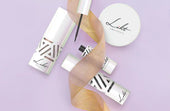
Liht Organics Black Friday: Enhance Your Beauty Routine with Vegan, Organic, and Natural Essentials!
As the holiday season approaches, there’s a sparkle in the air, and we at Liht Organics are thrilled to add a touch o...
-

Organic Makeup That Heals As It Conceals
Liht Organics Empowers Women With Only The Best For Their Beauty NeedsLiht Organics combines the best of both worlds:...
-
![[FEATURE] Liht Organics to debut at TFWA Asia Pacific show](//lihtorganics.com/cdn/shop/articles/1_1.png?v=1759328400&width=170)
[FEATURE] Liht Organics to debut at TFWA Asia Pacific show
‘Organic makeup that’s safe enough to eat’ — Liht Organics to debut at TFWA Asia Pacific show by Hannah Tan | 24 Apri...
-
![[FEATURE] The Singapore-based organic makeup brand is a first-time exhibitor at this year’s TFWA Asia Pacific Exhibition in Singapore in May 2025](//lihtorganics.com/cdn/shop/articles/2_1.png?v=1759328386&width=170)
[FEATURE] The Singapore-based organic makeup brand is a first-time exhibitor at this year’s TFWA Asia Pacific Exhibition in Singapore in May 2025
TFWA Asia Pacific preview: Liht Organics targets expansion in travel retail By DFNI Staff Writer The Singapore-bas...
-
![[FEATURE] Travel Retail Awards 2025 finalists - Best Make-up Product Color-Intense Liquid Lipstick – Liht Organics](//lihtorganics.com/cdn/shop/articles/4_e2f54f0f-fcd1-46e7-9990-fc9d29e35131.png?v=1759328382&width=170)
[FEATURE] Travel Retail Awards 2025 finalists - Best Make-up Product Color-Intense Liquid Lipstick – Liht Organics
Revealed: Travel Retail Awards 2025 finalists By Trbusiness Editor | Wednesday, 23 July 2025 15:21 TRBusiness is th...
-
![[FEATURE] Liht Organics targets expansion in travel retail](//lihtorganics.com/cdn/shop/articles/3_1.png?v=1759328346&width=170)
[FEATURE] Liht Organics targets expansion in travel retail
Organic makeup that’s safe enough to eat: Liht Organics targets expansion in travel retail By Laura Shirk Liht Organ...
-

[FEATURE] Gulf News: TikTok’s strawberry girl makeup trend: How to achieve that rosy glow inspired by Hailey Bieber
Berry, berry, strawberry, love strawberry, like BTS’s J-Hope, the band’s strawberry enthusiast once said. If only we ...
-

[FEATURE] Gulf Business Magazine : Liht-ing it up
Our founder, Nerissa Low was interviewed by Gulf Business, where she discussed her experience launching Liht, an orga...
-

[FEATURE] Daily Vanity: 11 local beauty brands owned by women – you’d be surprised how many of them started in their kitchens!
When we give a shout-out to homegrown beauty businesses, we aren’t just doing it for the sake of supporting local. Th...
-

[FEATURE] Entrepreneur ME : UAE-Based Liht Organics' Nerissa Low On Crafting An Organic Makeup Brand For The Skin-Conscious Consumer
As is the case with the origin stories of so many startups out there, Liht Organics came into being after its founder...
-
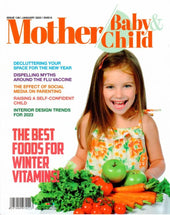
Mother, Baby & Child Editor’s Pick: Liht Organics Lights the Way
Excited to be the Mother, Baby & Child’s ‘Editors pick’ for their choice of Beauty brand.The article outlined the...
-
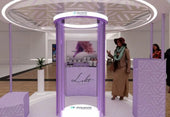
[FEATURE] EmiratesWoman - 8 Fabulous things to do in Dubai this weekend
by SARAH JOSEPHJANUARY 20, 2023Try the UAE’s first virtual reality makeup podium The popular VR-backed makeup exper...
-

Nerissa Low of Liht Organics On The Self-Care Routines & Practices Of Busy Entrepreneurs and Business Leaders
By Maria Angelova, CEO of Rebellious Intl.Date: 4 January, 2023Nerissa Low of Liht Organics On The Self-Care Routines...
-

Liht Organics: Meet the beauty brand that has caught the eye of the Royal Family of Bahrain
By Crystal Lee Digital Editor28 May 2021The world of clean beauty is, ironically, rather murky.That’s because the ter...
-

The latest luxury makeup and skincare drops, including serums, concealers, moisturisers and more
Allisa Noraini21 May, 2021It’s fine to splurge in the name of beauty. This new range of makeup and skincare drops are...
-

These SG Beauty Bosses Are Conquering The World Despite The Pandemic
First Singapore, then the US, China, Germany, Dubai, UK, South Korea, Malaysia, Hong Kong, Thailand, Australia… By...
-

Nerissa Low, Founder at Liht Organics
Written by Callum LaingPosted on December 26, 2020 10 min readNerissa Created Organic Makeup That Actually Improve...
-

Liht Organics – Makeup That Makes You
At Liht Organics, our mission is simple – to provide women (and men) with a safe experience when it comes to beauty s...
-

Why Should We Use Organic Makeup?
We cannot deny that cosmetics is one of our beauty essential item – it enhances our looks and conceals our flaws. Man...
-

Organic makeup and why your skin will love it: Liht Organics founder
By Jolene,July 27, 2020 |7 mins readOrganic make up in Singapore is a trend that is fast-catching on here as we becom...
-

[FEATURE] DC EDIT – Makeup & Confidence: Talking Self-love With Liht Organics’ Founder Nerissa Low
Makeup and confidence — the long, drawn-out fight that many of us have grappled with personally. I’m sure I’m not the...
-

[FEATURE] THE FEMALE CULTURE – I TRIED LIHT ORGANICS AND THIS IS HOW IT WENT
I’m a huge fan of makeup and I love testing out new products so I was pretty excited to get my hands on Liht Organics...
-

[FEATURE] SINGAPORE MOTHERHOOD – The Best Organic and Natural Skincare and Makeup for Pregnant and Breastfeeding Mums in Singapore
Pregnancy is a hormone-volatile period for women. One place where this makes itself seen and felt is on the skin. Som...
-

[FEATURE] AFTER CLINIC HOURS – 21 Back to Beauty Deals in Singapore (2020)
With spas and salons shuttered island wide for two months, I never thought I’d be this desperate for a good old’ Swed...
-

[FEATURE] KUL AL USRA MAGAZINE JUNE 2020
Choosing Pinks & Oranges this summer!Featured: Moisture Burst Lip Glaze in Pink Cupcake.
-
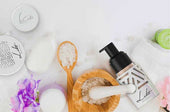
[FEATURE] Award-winning Organic Makeup Brand Liht Organics Gives Back to the Community & Environment During COVID-19
Singapore’s First Organic Makeup Brand with 100% Natural Makeup That Is Safe Enough to Eat Liht Organics promises org...
-

[FEATURE] COSMETICS DESIGN ASIA – COVID-19 ‘WAKE-UP CALL’: SINGAPORE’S LIHT ORGANICS SEES GLOBAL POTENTIAL AMID CLEAN BEAUTY CLAMOUR
Original article at: https://www.cosmeticsdesign-asia.com/Article/2020/06/26/Singapore-s-Liht-Organics-sees-globa...
-

[FEATURE] THE LIFESTYLE COLLECTIVE – BEAUTY SHOULD NEVER BE CRUEL
Date: June 24, 2020Author: Kristen Chen Liht (pronounced as light) Organics is a Singaporean organic makeup brand t...
-

[FEATURE] NÜYOU – 7 ONLINE PLATFORMS TO SHOP FOR CLEAN BEAUTY PRODUCTS
纯净美容(Clean Beauty)的美肤概念,再近几年来越来越受欢迎。随着消费者“爱自己”的美容意识逐步提升,对于用在脸上的所有物品、成分更为关注和讲究。以广义来讲,纯净美容主张使用“干净”成分和无毒配方,让肌肤的可能性损伤减到最小...
-

[FEATURE] COSMOPOLITAN MIDDLE EAST – 3 BENEFITS OF SWITCHING TO ORGANIC BEAUTY PRODUCTS THIS RAMADAN
By Cosmo – May 08, 2020Nerissa Low, founder of Liht Organics, shares the ultimate benefits of going organic this mont...
-

Nerissa Low of Liht Organics: “Seeing Light at the End of the Tunnel; 5 Reasons To Be Hopeful During this Corona Crisis”
Ely Weinschneider, Psy.D.May 8 · 9 min read …It shows us that everyone- whether we are rich or poor, regardless...
-

[FEATURE] AL MARA MAGAZINE APRIL 2020
-

[FEATURE] RetailME April 2020 – Liht Organics Stays Firm On Strengthening GCC Presence
-

[FEATURE] EMARAT AL YOUM NEWSPAPER – 27 MARCH 2020
English Translation:In spring and summer days, women love to have very light makeup in terms of color and texture, ...
-

[ARTICLE] WKND Magazine March 2020 – Know Your Organic Makeup
-

[FEATURE] AVIAMOST DUBAI – March/April 2020
English Translation:Lipstick with organic flowers. Thanks to the rich complex of natural ingredients, the lipstick...
-

[FEATURE] RUSSIAN EMIRATES (MAR/APR ISSUE)
Russian Emirates is a luxury lifestyle and fashion magazine covering information about the UAE, fashion, beauty, j...
-

[FEATURE] – KUL AL USRA MAGAZINE MARCH 2020
GET THE LOOK!
-

[FEATURE] IMAGES Retail ME – Liht Organics Announces GCC-Wide Expansion
Rupkatha Bhowmick Mar 10, 2020 The plan is to reach 75 Liht Organics retail touchpoints by June-July 2020 and touch...
-

[FEATURE] BABY & CHILD SPRING 2020 – NATURAL BEAUTIES
-

[FEATURE] AWQAT DUBAI – Liht Organics: The First Premium Organic Makeup Brand
ENGLISH TRANSLATION:Liht Organics – The First Premium Organic Makeup Brand Liht Organics, a premium organic beauty ...
-

[FEATURE] FRIDAY MAGAZINE – THE RETRO EYELINER LOOK
-

[FEATURE] MOTHER BABY & CHILD – VANITY ESSENTIALS – THE BEAUTY EDIT
-

[FEATURE] Masala! Magazine February/March 2020 Issue – Beauty Debut: Liht Organics
-

[Feature] – TimeOut Singapore – The Best Local Beauty and Skincare Brands In Singapore
For full article, click here.
-

[FEATURE] KUL AL USRA MAGAZINE – LIHT UP YOUR WORLD WITH LIHT ORGANICS
[ENGLISH TRANSLATION]Liht Up Your World With Liht OrganicsThe First Premium Organic Makeup Brand To Debut In The Mi...
-

[FEATURE] SINGAPORE TATLER – 9 Local Beauty Brands You Should Know Of
-

[FEATURE] nüyou August 2019 Issue – 15 Faces To Watch
-

[FEATURE] HONEYCOMBERS – Local Beauty Gurus: Singapore Beauty Brands You Need To Know About
-

[FEATURE] The Wellness Insider – Seeing The Liht With Founder Nerissa Low
-

[FEATURE] 联合早报 (LianHeZaoBao) – Women Entrepreneur Awards 2019 Coverage
-

[FEATURE] THE STRAITS TIMES Life – Clean beauty with a Singapore heart
-

Romantic Organic Makeup Looks for Valentine's Day: Tips, Tricks, and Product Picks
Valentine's Day is the perfect occasion to embrace the beauty of organic makeup. At Liht Organics, we believe in the ...
-
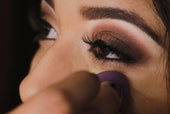
Enhance Your Eyes: A Guide to Eyeliner for Every Eye Shape with Liht Organics
Welcome to the Liht Organics blog, where we believe in celebrating the natural beauty of every eye shape. Today, we'r...
-
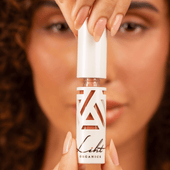
How to do makeup with only lipstick?
At Liht Organics, we believe in the power of clean beauty and the artistry of makeup. Makeup is more than just enhanc...
-

How to Clean Your Makeup Brushes in 6 Simple Steps
Cleaning your makeup brushes may seem like a tedious task, but it's an essential part of your beauty routine. Not onl...
-

Makeup Tips to Help You Look Your Most Flattering on Virtual Meetings!
After more than 2 years of work-from-home arrangement, and possibly hundreds of zoom calls and Google meet virtual me...
-
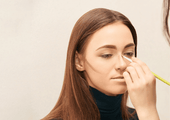
Learn How to Contour with This Simple Guide for Beginners
Want to take your makeup to the next level? Try contouring to achieve a more defined or sculpted look à la the Kardas...
-
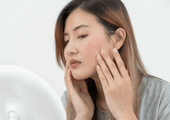
Essential and Easy Makeup Tips for Sensitive Skin
Living with sensitive skin conditions like eczema, psoriasis, and more is already not an easy feat. Throw in makeup t...
-

Raising Your Vibration: A Liht Organics Guide for Empowerment This International Women's Day
wp:paragraph As International Women's Day (IWD) approaches, it serves as a powerful reminder of the journey towards s...
-

The Beauty of Going Bare: Why Sleeping with Makeup is a No-No
Have you ever had one of those nights where you're too tired to clean off your makeup? You might believe, "Skipping...
-

Breast Cancer Awareness: Empower Your Beauty with Liht Organics Makeup
During October, we observe Breast Cancer Awareness Month as a way to unite and bring attention to breast cancer whil...
-

The Hidden Dangers of Carmine in Makeup Colorants: Embracing Healthier and Vegan Options
Makeup has become an integral part of our daily routines, allowing us to express our unique beauty. However, as we pr...
-

How can I ensure that my makeup products are organic and won't harm my skin?
When it comes to makeup, it’s important to be mindful of what you’re putting on your skin. With so many products on t...
-
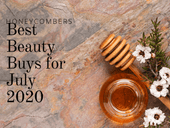
[FEATURE] HONEYCOMBERS – BEST BEAUTY BUYS IN JULY
by Nicole NithiyahWhat’s hot in our beauty hit list: Honest thoughts and top beauty stories we’re swooning over. As w...
-

Liht Organics Introduces Exclusive Gift Sets: Enhance Your Beauty This Festive Season!
As the holiday season approaches and the year draws to a close, Liht Organics is thrilled to present two enchanting g...
-

Get Spooktacular with the Best Halloween Makeup Ideas using Liht Organics' All-Natural, Vegan, and Cruelty-Free Cosmetics!
With Halloween just around the corner, it’s time to let your creativity shine and transform yourself into a spooky,...
-

Celebrating World Animal Day with Liht Organics: Embracing Natural Cruelty-Free Makeup
wp:paragraph As we observe World Animal Day, the team at Liht Organics takes great pride in honoring our pledge to...
-

Reasons Why You Should Choose Cruelty-Free Cosmetics Instead!
With increasing exposés unveiling the ugly truth behind animal testing that goes on in the beauty industry, it is lit...
-

Celebrate Singles Day with Makeup That Empowers – 22% Off at LIHT Organics!
This Singles Day, treat yourself to beauty that goes beyond skin-deep. At LIHT Organics, we believe makeup is about s...
-

Preparing for the Cozy Beauty of Autumn: A Preview of Your Fall Look
As we bid farewell to the warm, sun-kissed days of summer, it’s never too early to start dreaming about the enchantin...

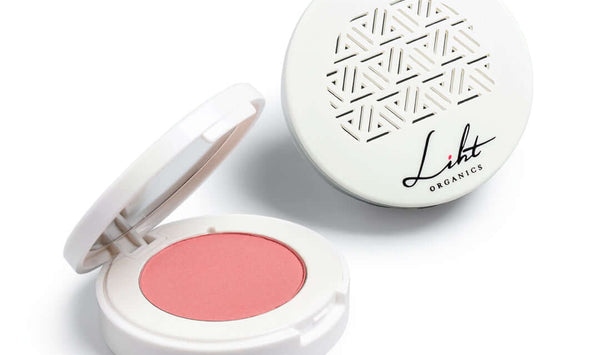
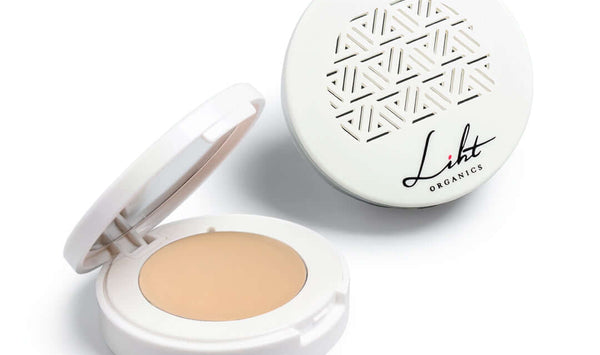
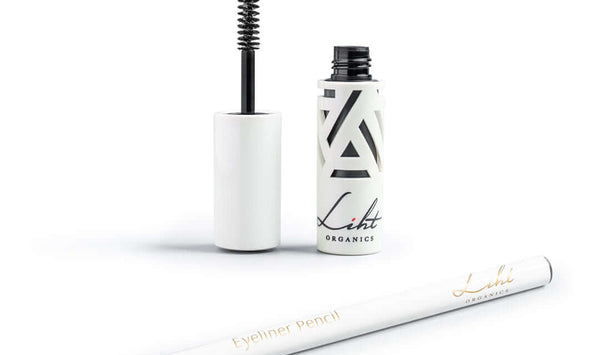
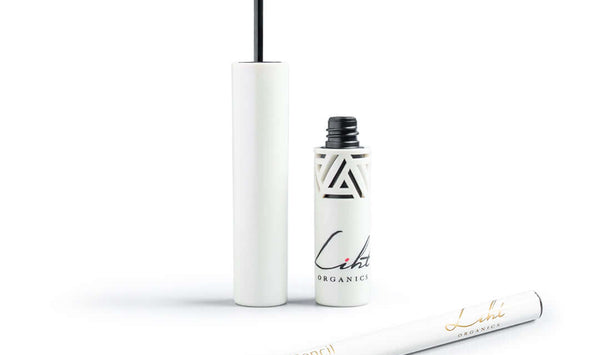
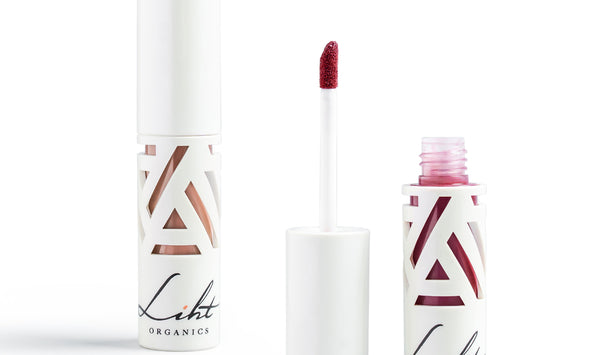
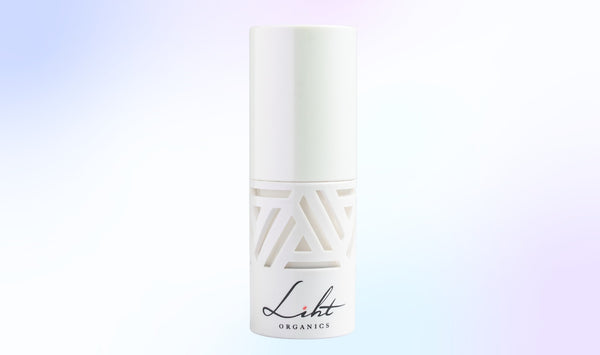

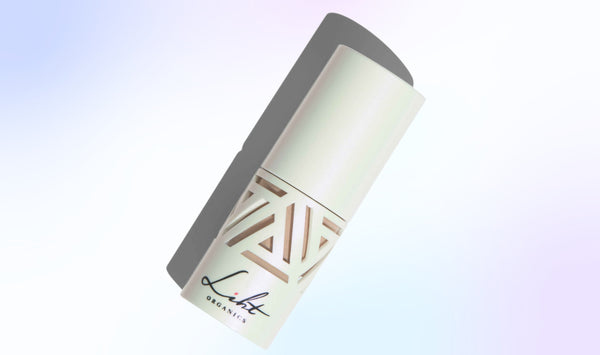
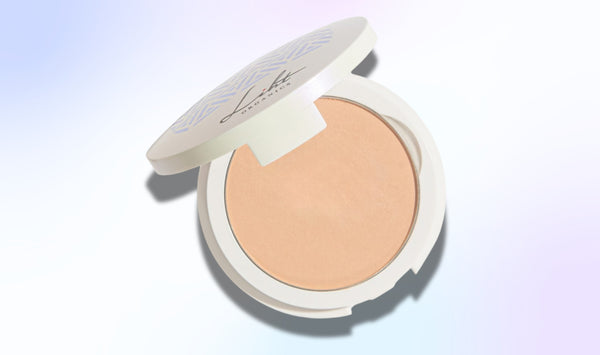
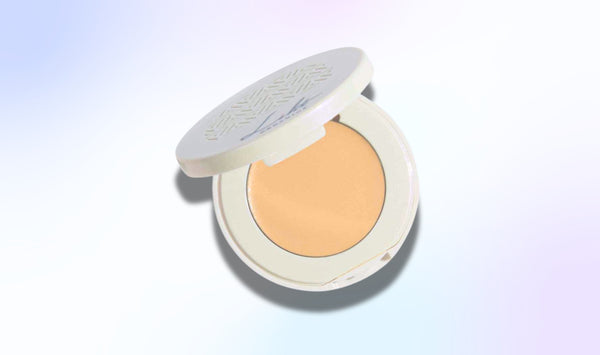
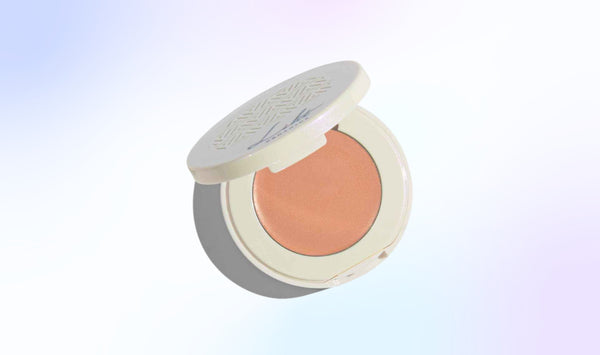
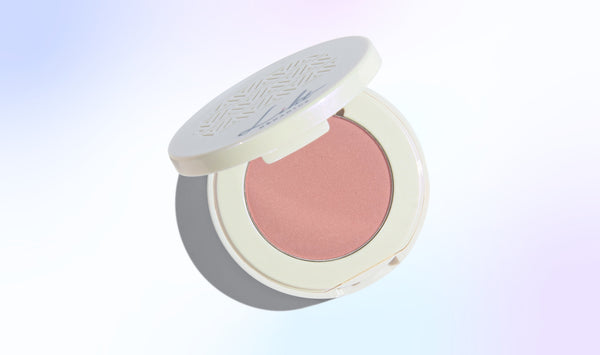
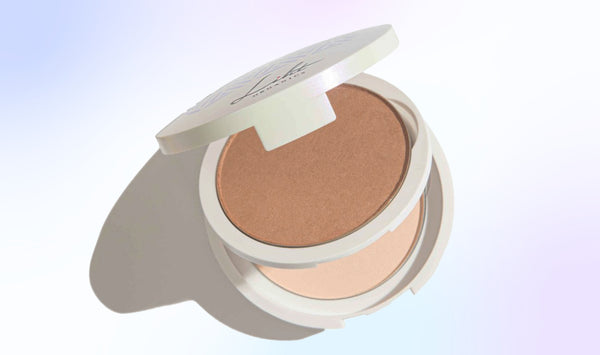
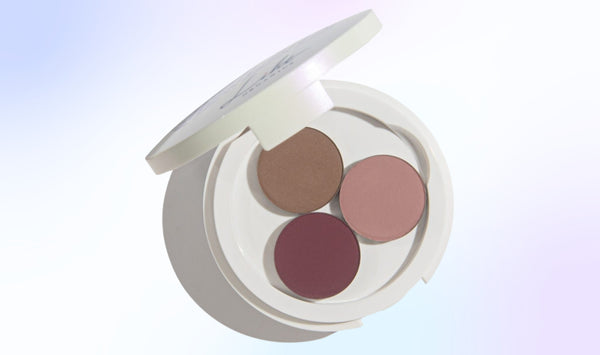
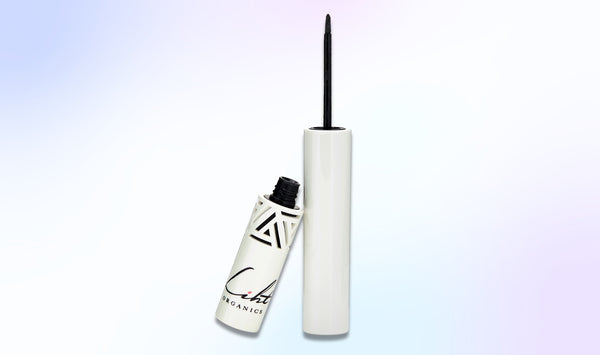
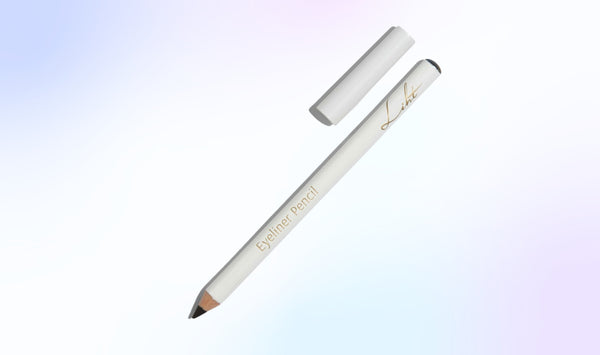
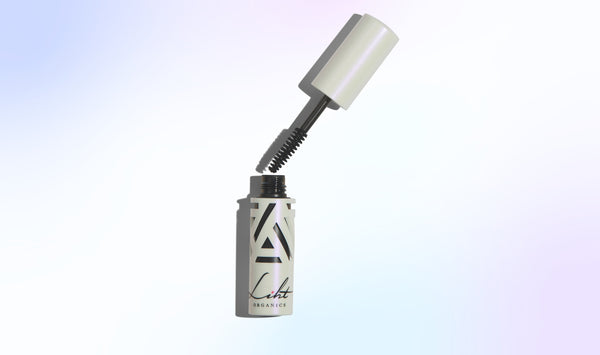
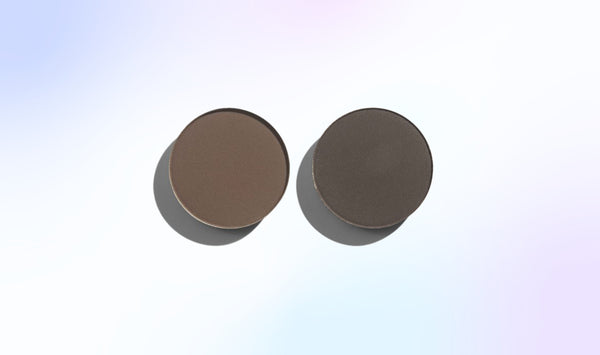
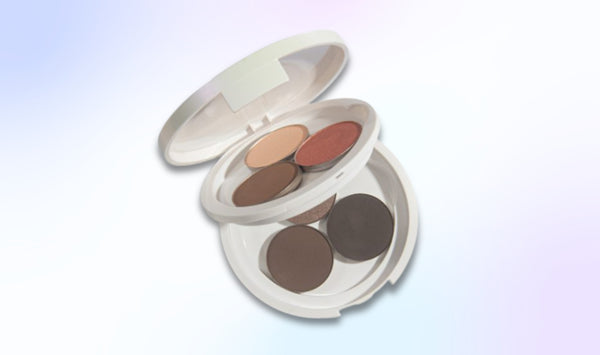
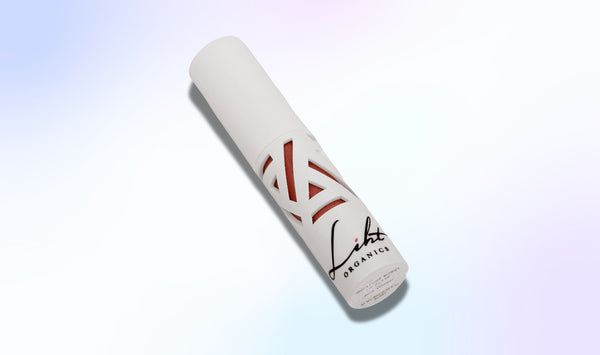
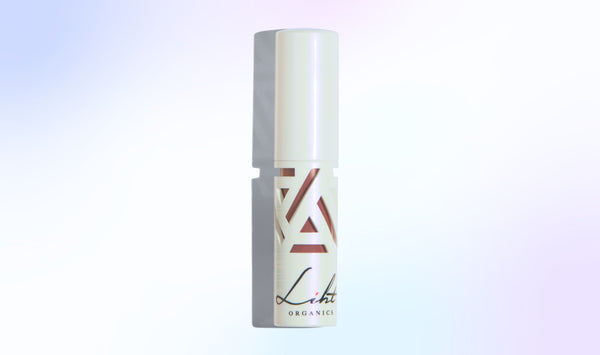
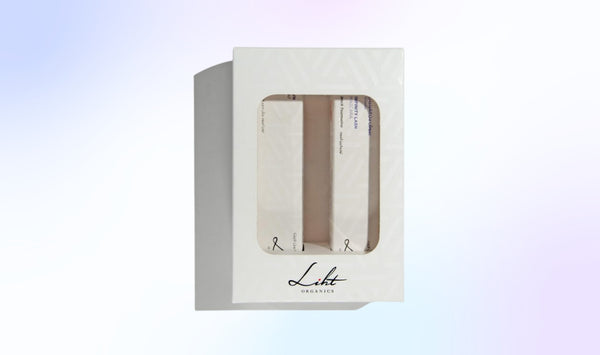
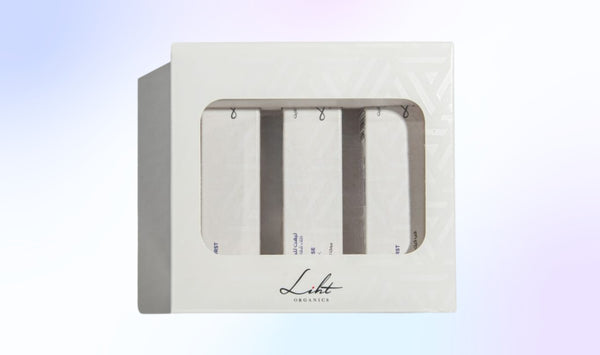


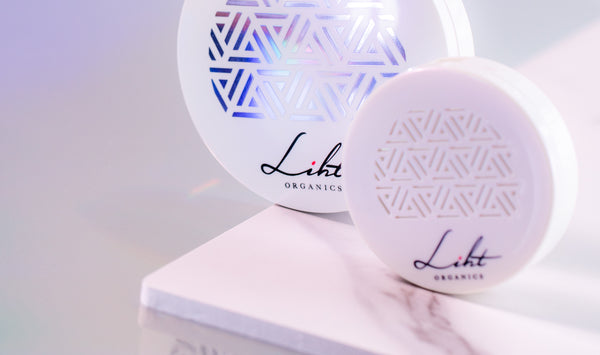
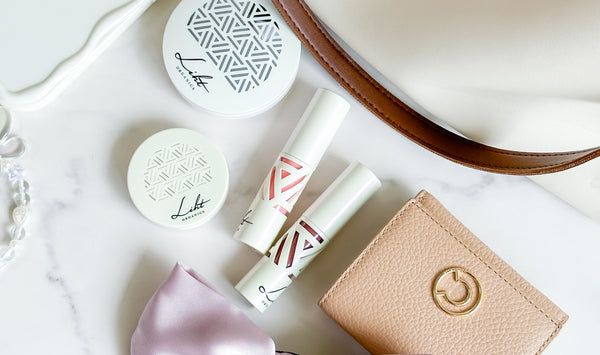
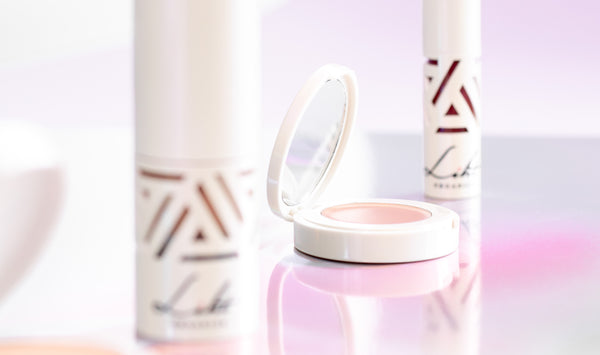




![[FEATURE] Liht Organics to debut at TFWA Asia Pacific show](http://lihtorganics.com/cdn/shop/articles/1_1.png?v=1759328400&width=170)
![[FEATURE] The Singapore-based organic makeup brand is a first-time exhibitor at this year’s TFWA Asia Pacific Exhibition in Singapore in May 2025](http://lihtorganics.com/cdn/shop/articles/2_1.png?v=1759328386&width=170)
![[FEATURE] Travel Retail Awards 2025 finalists - Best Make-up Product Color-Intense Liquid Lipstick – Liht Organics](http://lihtorganics.com/cdn/shop/articles/4_e2f54f0f-fcd1-46e7-9990-fc9d29e35131.png?v=1759328382&width=170)
![[FEATURE] Liht Organics targets expansion in travel retail](http://lihtorganics.com/cdn/shop/articles/3_1.png?v=1759328346&width=170)
































































